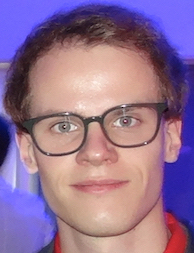All medical students acquire some experience in basic research because it is an integral part of the practical work in our biology, biochemistry, and physiology classes. For instance, all of us learn at some point in our training how to use a microscope, measure the pH of a solution, and perform a Western blot accurately. Considering the constant increase in life science knowledge generated by researchers all around the world, it is more than legitimate that we, as future doctors, are required to demonstrate respective skills. To illustrate that, internal medicine is probably the one medical discipline that has been changed the most by basic research discoveries, a transformation that is still in process.
Whether caused by scientific curiosity or career planning, some of us decide to actually add to the ever-growing body of literature by joining a basic research group to conduct a research project. Because the ultimate goal of doing so is not entirely altruistic and most of us want to earn either an MD or a PhD, publishing papers is an inevitably important part of the agreement we enter into with our supervisors. But for me, there is another thing of comparable importance. Beyond all efforts to yield meaningful scientific results that may eventually add to biomedical knowledge, we can benefit in a different way that is sometimes overseen by students and supervising postdocs or faculty. In this perspectives article, I want to emphasize the value of dedicated mentoring for medical students, motivated by my experiences from 3 years of laboratory research.
Medicine, as it is taught in medical school, is mainly communicated through textbooks and, due to the omnipresence of digitalization and the Internet, more and more through podcasts, videos, and other digital media. But obviously, all health professionals are in need of a second toolbox providing them with another set of skills usually referred to as interpersonal or social skills. This includes taking medical histories, talking with patients about imaging findings, and delivering bad news to relatives. However, you might as well want to consider the placement of an IV or a chest tube to fall into this broader category. Effective mentoring can help (to-be) doctors to develop and improve these skills. For me, the most formative experiences during medical school involved physicians who actively engaged in mentoring and taught not only medicine but how to be a good doctor.
You may already see the analogy here. Most of the vast knowledge in biomedical research is easily accessible via Google Scholar or PubMed, and experimental protocols and procedures are either published by the manufacturers or come along with respective papers. Even more, reagents for the purification of nucleic acids and proteins, for Western blots and PCRs are available in kits that work like a cookbook that you buy with all ingredients included in the first place. One might be tempted to argue that a student requires very little guidance in a research laboratory nowadays—at least not beyond providing reagents and pipette tips. However, I believe exactly the opposite: I think mentoring is becoming more and more important to enable young researchers to make an impact with their work and ultimately finish their thesis successfully.
Implicit and explicit mentoring takes place in various situations: As part of a researcher's daily routine, experimental results must be judged in terms of accuracy and whether they validate or falsify the assumed research hypotheses. Sometimes, a planned line of experiments must be modified or abandoned completely. Trouble-shooting and experimental design are essential skills that can't be learned from textbooks or papers alone, because these, and all the aforementioned competences, comprise a combination of knowledge, intuition, and experience. And of course, there is much more to being a researcher than doing experiments. The presentation of findings at conferences and in papers is as essential as it is difficult for students. I think that learning from experienced scientists is much more effective than taking a “scientific writing” course (although that might help as well) because it combines “learning-by-doing” with almost immediate, constructive feedback.
In the introduction, I expressed my belief that young scientists can learn even more from those supervisors who actively pursue mentoring efforts. By that, I'm referring to career guidance and role modeling. Biomedical research can certainly be considered competitive. Thus, a mentor can be extremely helpful in exploring career options, developing coping strategies with regard to workload and prioritizing projects to get the most out of a student's time. This includes setting long-term goals and developing management skills. Although this kind of “meta-science” is time-consuming and might not immediately pay off, it's an extremely valuable investment into a future generation of researchers.
All these things may sound trivial. Nevertheless, I believe that a great mentor can make the difference between a successful research project and a frustrated, burned-out student researcher. Of course, this doesn't mean that our supervisors carry the entire responsibility for our success and we can just sit back. As with all human relationships, it is a “give and take.” But, in basic research as well as medicine, knowledge is not only passed on through written words but also through dedicated mentoring. We medical students, who often have a limited amount of time at our disposal to complete a research project, definitely profit from close assistance by an experienced mentor.

Daniel Schuette
Yale University School of Medicine
Laboratory of Molecular Hermeneutics
And Cologne University School of Medicine
Back to the January 2019 issue of ACP IMpact

